#May Beatty
Text
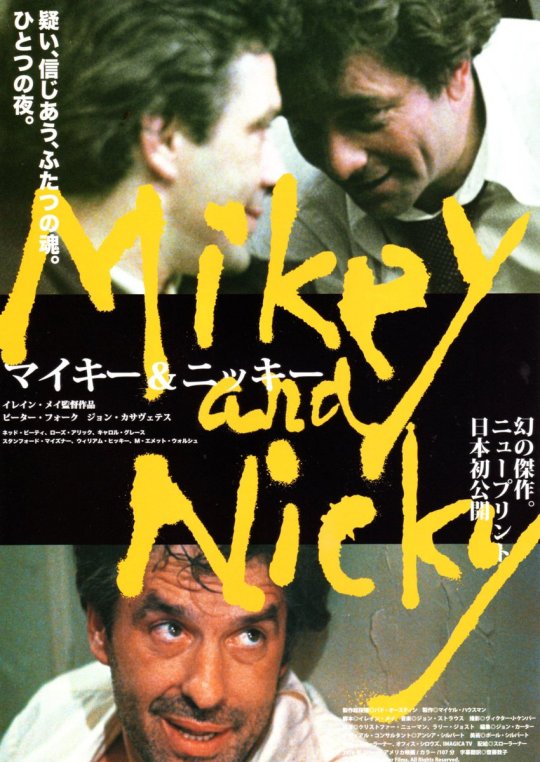
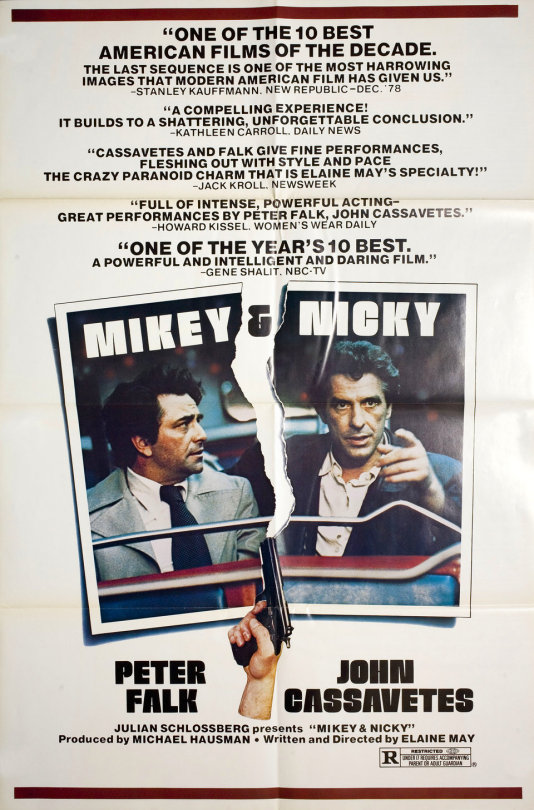
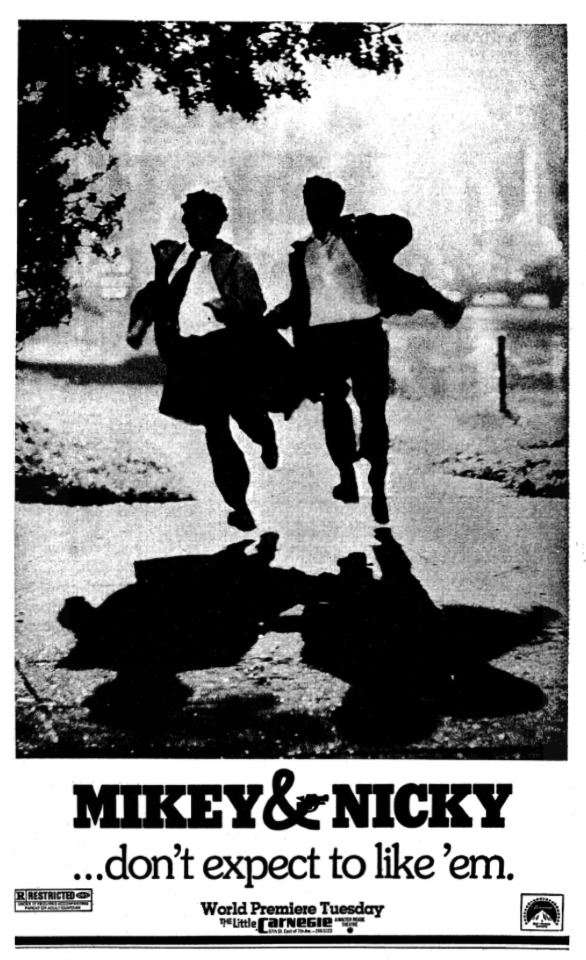


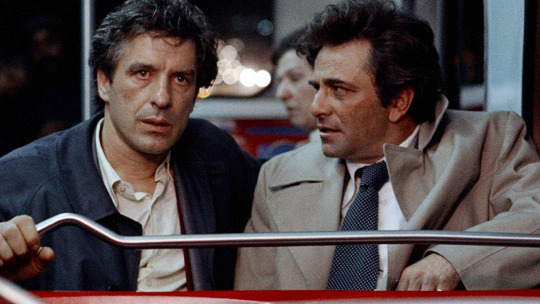
Mikey and Nicky (1976) Elaine May
January 6th 2023
#mikey and nicky#1976#elaine may#peter falk#john cassavetes#ned beatty#rose arrick#carol grace#sanford meisner
152 notes
·
View notes
Text
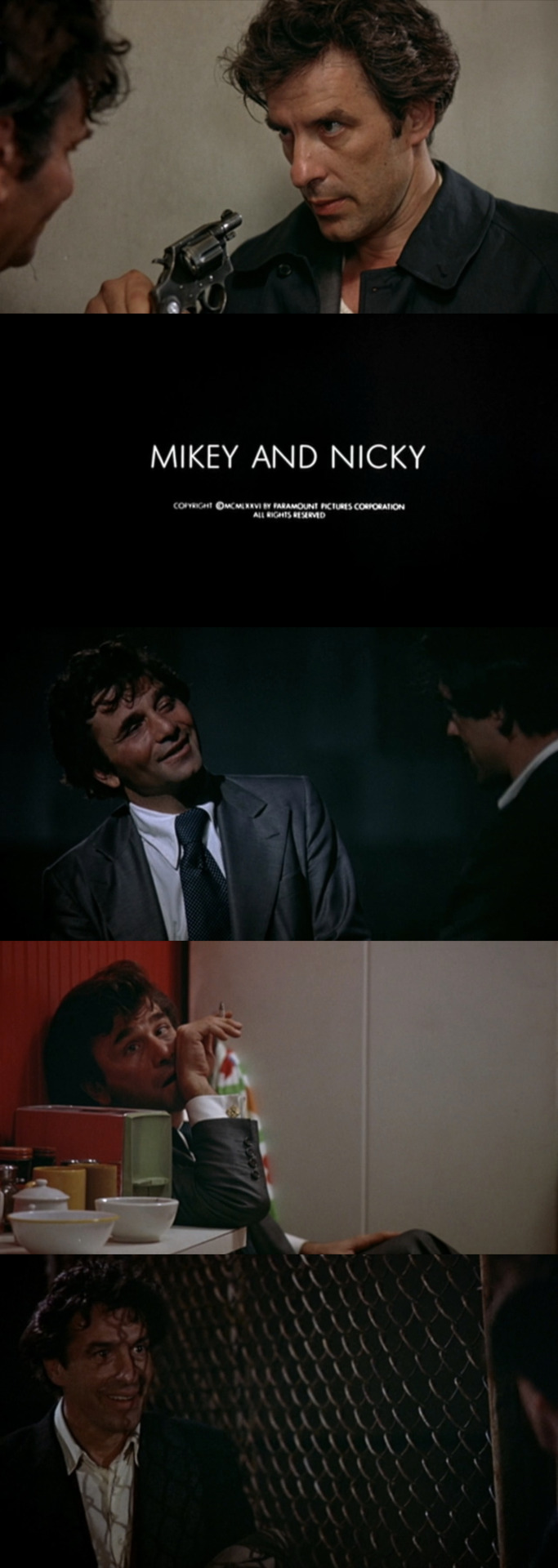
Mikey & Nicky (Elaine May, 1976)
84 notes
·
View notes
Text
Tom: Jane, bicycle!
Jane, singing: Bicycle! Bicycle! I want to ride my bicy-
*crashes into Grace Chasity*
#starkid#incorrect starkid quotes#incorrect starkid#incorrect quotes#incorrect quotes starkid#team starkid#tom houston#dylan saunders#jane perkins#jaime lyn beatty#incorrect nightmare time#nightmare time#jane's a car#grace chasity#angela giarratana#queen band#queen#freddie mercury#brian may#source: unknown#hatchetfield universe#hatchetverse#hatchetfield
29 notes
·
View notes
Text

"The mob's top killer is on the prowl. He's already murdered one man for stealing his boss's money. Now as night closes in he stalks another frightened victim. The death contract is sealed, the price for defying the syndicate must be paid in blood. On the city's dark violent streets, the last hours of life tick away."
Mikey & Nicky (1976) - The killer strikes at dawn...
16 notes
·
View notes
Photo
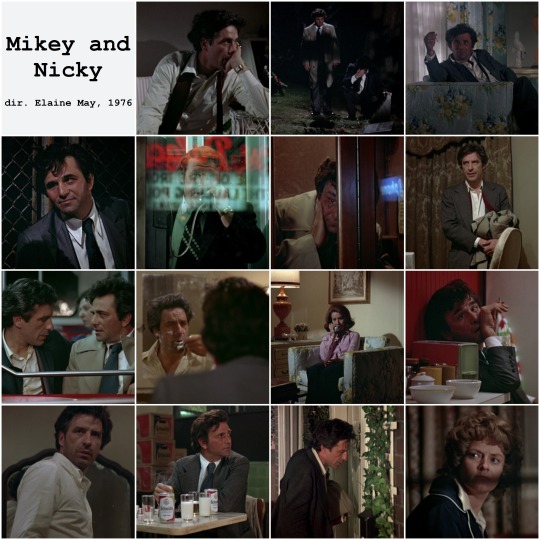
Mikey and Nicky
directed by Elaine May, 1976
#Mikey and Nicky#Elaine May#movie mosaics#John Cassavetes#Peter Falk#Ned Beatty#Rose Arrick#Joyce Van Patten
42 notes
·
View notes
Text




Elaine May movies, as depicted by Josh Abraham of TheJoshShop on etsy.
#elaine may#a new leaf#mikey and nicky#ishtar#the heartbreak kid#walter matthau#peter falk#john cassavetes#dustin hoffman#warren beatty#cybill shepherd#charles grodin#jeannie berlin
77 notes
·
View notes
Text
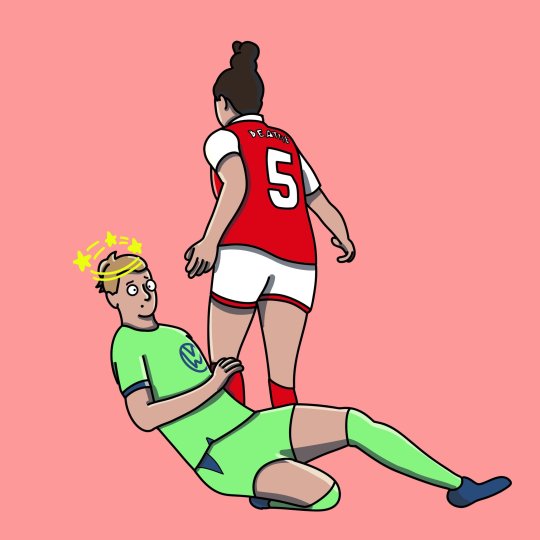
Arsenal lose in the champions league semifinals but what a run it was.
16 notes
·
View notes
Text
A movie that is so much better than its reputation implies.
Script below the break
Hello and welcome back to The Rewatch Rewind! My name is Jane, and this is the podcast where I count down my top 40 most frequently rewatched movies in a 20-year period. Today I will be discussing number 9 on my list: Columbia Pictures’ 1987 comedy Ishtar, directed by Elaine May, written by Elaine May, and starring Warren Beatty and Dustin Hoffman.
Two extremely untalented songwriters, Lyle Rogers (Warren Beatty) and Chuck Clarke (Dustin Hoffman), manage to book a gig in a hotel in Marrakesh, Morocco. But on the way there from New York, when they’re stopped in the fictional bordering country of Ishtar, they encounter both a mysterious woman disguised as a man, later revealed to be left-wing agent Shirra Assel (Isabelle Adjani), who convinces Chuck to give her his passport, and CIA agent Jim Harrison (Charles Grodin), who recruits Chuck to spy for him. Without having any clue what’s going on, Lyle and Chuck become caught between rebels trying to overthrow the Emir of Ishar and the CIA trying to keep him in power, when all they want to do is keep writing songs.
So, first of all, let’s get this out of the way: as I mentioned at the end of last episode, this movie has often been cited as one of the worst films ever made. Aside from the whole question of whether it’s even possible to definitively rank something as subjective and vague as how “good” or “bad” a movie is, for Ishtar in particular, this feels like a highly unfair label. There were a lot of problems with making it, in terms of creative disagreements, political unrest in filming locations, and an enormous budget that kept growing, but plenty of movies with similar issues turn out okay. Most of the negative perceptions of this movie were stirred up by the press before and shortly after the film’s release, and it has been speculated that this was for two main reasons: one, Warren Beatty (who was also the producer) didn’t like dealing with press and had not permitted any reporters on set during filming, which they resented; and two, David Puttnam, who took over as head of Columbia Pictures during production of Ishtar and was well known for despising big-budget pictures, as well has having grudges against both Beatty and Hoffman, allegedly leaked negative stories about production to the media. So the movie was set up to fail at the box office, which it did, grossing just under $14.4 million against a budget of approximately $55 million. But, while there are definitely people who have seen it and not enjoyed it, which is fair enough, most of the people who strongly criticize it have never actually watched it. And despite all the conflict during production, the main people involved in making it still defend it, with Beatty calling it “a very good, not very big, comedy, made by a brilliant woman” and Hoffman quoted as saying, “I liked that film…just about everyone I’ve ever met that makes a face when the name is brought up has not seen it…I would do it again in a second,” and May stating in 2006, “If all of the people who hate Ishtar had seen it, I would be a rich woman today.”
Coincidentally, 2006 also happens to be the year when I first watched Ishtar. Not having been born yet when the film was released, I missed the negative press, and while I’m sure I was somewhat aware that it had a bad reputation, the main thing I knew about it was that my mom really liked it. I know she watched it twice in theaters, so it’s not her fault that its box office performance was so poor. She got it from the library to share with me, and I remember that before we watched it my dad said that he thought this was going to become one of my favorite movies, and he was extremely correct. I thought it was the funniest movie I’d ever seen and I could not get enough of it. I watched it three times in that month alone, then bought the VHS from the local Hollywood Video when they were selling all their tapes for $3 the following month, and had watched it a total of 8 times by the end of that year. I then watched it twice in 2007, twice in 2008, once in 2009, twice in 2010, once in each year from 2012 through 2017, once in 2019, three times in 2020, twice in 2021, and once in 2022. Ishtar was sadly never released on DVD in North America, but it did come out on Blu-ray in 2013, which I naturally also had to buy. I’ve shared this movie with several other people, but none of them have seemed to really get into it the way my mom and I did, which again, is totally reasonable. I get that it’s a weird and ridiculous movie. And there are even parts of it that I don’t like. But the parts that I love make me so happy that I can easily forgive the negative aspects.
The first 20 minutes or so in particular are just incredible. We get the perfect introduction to Chuck and Lyle, both their songwriting backgrounds and their friendship. The movie opens with them working out the lyrics to what will become their main song, trying to figure out a way to describe the concept of “tellin’ the truth,” coming up with such gems as “Tellin the truth is a scary predicament,” “Tellin the truth is a dangerous tunnel,” and my personal favorite “Tellin the truth is a bitter herb” before finally settling on “Tellin the truth can be dangerous business/Honest and popular don’t go hand in hand/If you admit that you can play the accordion/No one will hire you in a rock and roll band!” Once they’ve completed the song, they believe that Rogers and Clarke could become the next Simon and Garfunkel (“Dangerous Business is as good as Bridge over Troubled Water any day of the week!”), so they hire an agent, who thinks he can get them a job in either Honduras (“The last act left because they were nervous about the death squads, but there’s no danger if you don’t drive in the countryside”) or Morocco. While they’re thinking these offers over, we get some flashbacks about how they met and started working together, seeing how they’ve lost money, relationships, and pretty much everything else pursuing songwriting. So despite the fact that we’re clearly meant to be mocking them, we also can’t help but feel sorry for them. Their songs are bad but in a very funny way, and their mutual admiration is surprisingly sweet. The rest of the movie doesn’t quite live up to this intro, but even though the story does kind of fall apart a bit, I’m still thoroughly engaged the whole way through every time.
A big part of that is because I’m always amused by characters who think they know exactly what’s going on but actually have no clue. Come to think of it, Cary Grant often played characters like that, although usually not quite to this extent. In Ishtar, Lyle and Chuck are in a completely different world from all the other characters, in the most entertaining way possible. There are several relatively subtle examples of this that took me a few rewatches to notice but are now some of my favorite parts of the movie, like when Lyle is an ice cream truck driver in New York and is so focused on coming up with his next song that he doesn’t notice the crowd of children trying to get him to stop and let them buy ice cream, or when Chuck finds out the American Embassy in Ishtar can’t easily issue him a new passport and punches a hole in the divider between offices and everyone else in the room goes to fix it while he and Lyle keep talking obliviously, or when a ton of pedestrians and cars are very conspicuously following both of them in Marrakech without them ever catching on. And there are more obvious examples, like toward the end when both the CIA and the rebel army have sent Chuck and Lyle into the desert hoping they’ll die there, and even after they’ve gotten lost their main worry is that they’re missing their performance at the hotel. Things like this happen constantly throughout the film, and they’re funny every time. While it’s mostly entertaining, their cluelessness can also be taken as criticism of the average American’s ignorance when it comes to foreign politics. When Jim Harrison mentions Gaddafi, Chuck asks, “Is that near here?” clearly under the impression that Gaddafi is the name of a country rather than the ruler of one. Chuck seems to have the basic understanding that good guys equal Americans and friends of Americans, and bad guys equal communists, while Lyle seems to have even less understanding than that. Jim Harrison and Shirra Assel are their complete opposites, with a much deeper comprehension of the complexities of the tension in the area, albeit with very different perspectives. Jim is often exasperated and bewildered by Chuck and Lyle’s cluelessness, but Shirra, while she sometimes gets a little frustrated with and definitely takes advantage of them, never reveals much disdain toward them the way Jim does. Isabelle Adjani plays Shirra completely straight, as though this is a very serious political thriller, and her gravity makes the film so much funnier. Beatty and Hoffman are similarly committed to their characters’ conviction that the main storyline is their rise to prominence as songwriters. Charles Grodin plays Jim as though he’s the only main character who fully understands what movie he’s in, and wishes he knew how to get out of it. And to me, that is a perfectly hilarious dynamic.
I do want to acknowledge that there are aspects of this movie that are rather racist, particularly the part when Chuck is pretending to be a Moroccan translator at an auction and puts on a vaguely offensive accent, and then speaks gibberish that he imagines sounds like either Arabic or Berber languages. I do think that because we’ve already established him as a particularly ignorant character, the movie isn’t necessarily condoning what he’s doing, and it’s relatively harmless, but I do understand how it could make people uncomfortable. There’s also some vague homophobia in the way both Chuck and Lyle react to Shirra when they think she’s a man, and transphobia when Shirra having breasts is automatically interpreted as her being a woman. I would say these all fall under the “disappointing but not surprising” umbrella, given when this movie was made. But there are other aspects that are pleasantly surprising, such as rather blatant criticism of the CIA for keeping oppressive dictators in power and portraying left-wing rebels as the good guys. So it’s complicated.
And speaking of complicated, let’s get into Ishtar’s portrayals of sex and romance. In the flashback portion, we see that Chuck was dating a woman named Carol (played by Carol Kane) and Lyle was married to a woman named Willa (played very briefly by Tess Harper, who doesn’t even get any lines), but both of them get dumped because they’re more focused on songwriting than their significant others. But in Ishtar and Morocco, both Chuck and Lyle are interested in Shirra – maybe not quite as much as they’re interested in their music, but almost. They both seem to think they’re competing for her affections, but she is clearly not remotely interested in doing anything with either of them beyond getting them to help her overthrow the Emir. Shirra reacts to their unwanted advances by either getting slightly annoyed or using their interest in her to get them to do what she wants. Even at the end of the movie, when she cares about them enough to save their lives, and even enjoy their music, you still don’t get the feeling that she’s interested in them romantically. When Chuck and Lyle are pursuing her, they’re the ones who are portrayed as weird for focusing on romance when there are so many other more important things going on, which is a refreshing break from the amatonormative message of so many movies that romance is the highest goal. Similarly, Chuck and Lyle are clearly sexually attracted to Shirra, but aside from her exposing her breasts to reveal that she’s a woman, there’s nothing sexual that goes on between them. There’s a great conversation between Jim and Chuck when Jim’s describing how Shirra and Lyle were alone in a hotel room together, and Jim is convinced that Shirra seduced Lyle and recruited him to her cause, but Chuck says, “Oh don’t be ridiculous, Lyle’s not a communist; he’s from the South! And I don’t think she’s that kind of girl.” And when Jim points out, “She’s a suspected terrorist,” Chuck responds with, “Granted, but that doesn’t mean she sleeps around!” So the allonormative assumption that everybody’s having sex all the time is portrayed as ridiculous. Of course, when I started enjoying this movie I had no idea that I was aroace or that that was even a thing, but I don’t think it’s a coincidence that I love this story that had multiple opportunities to go down romantic and/or sexual paths but actively chose not to. Lyle, Chuck, and Shirra all end the movie happy and, at least as far as we know, single, and not enough movies have that kind of ending. When you’re always made to feel like the weird one for not thinking everything should be about romance and sex, it’s so nice to see any characters who try to make this movie become more about those things portrayed as the unreasonable ones.
But don’t get me wrong, the lack of a major romantic storyline is far from the main reason I love this movie; it’s merely the icing on top of a delightfully hilarious cake. There are so many great lines that my mom and I quote to each other constantly, like, “You’d rather have nothing than settle for less” and “My name is Hawk. It’s short for The Hawk” and “The dome of the Emir’s palace in Ishtar is gold. The people have never seen a refrigerator” and “This must be one of those once in a lifetime things, like the glaciers melting.” That last one is in response to a windstorm after they’ve been told there’s no wind in the desert, which they for some reason believed. I’m willing to concede that this movie does not have the best plot, but I also feel like that’s kind of the point. It’s just meant to be silly fun, and in my opinion, it absolutely succeeds at that. Even though the songs are meant to be terrible, I still rather enjoy them, in a so-bad-it’s-good kind of way. The end credits say that there’s a soundtrack available, and I spent a while trying to track one down, until I learned that despite the fact that they apparently recorded full versions of most of the song snippets we hear in the film, the soundtrack was never released, probably because of all the negative reviews. Besides Dangerous Business, which they do sing all of at the end of the movie, the only full song available that I know of is Portable Picnic, which is the expanded version of the “hot fudge love, cherry ripple kisses” song that Lyle comes up with in the ice cream truck. For all the other songs, we have to settle for the little clips in the film and forever wonder how the rest would have gone. Life is full of disappointments.
This movie is obviously not for everyone, but that’s true of pretty much every movie. The haters are going to keep hating, but it’s nice that there are multiple generations of audiences now who weren’t around for the negative press and can still discover and appreciate the fun silliness of it. Probably the worst result of the bad reviews and poor box office performance is the fact that Elaine May never directed another movie after Ishtar. (I mean, I guess technically she still could, but given that she’s in her 90s now, that seems unlikely.) And like, yes, by all accounts she was responsible for a significant amount of the conflict on set and prompted much of the overspending, but I can’t help thinking of several prominent male directors who have a reputation for working similarly and are hailed as geniuses, even if they direct an occasional flop. I do think part of it was that May herself was discouraged, both because she had such a rough time on set and because of the horrible media response, so she might not have wanted to direct again even if given the chance. But I don’t think it’s inaccurate to attribute at least some of the negativity aimed at her to sexism. Even now, 35 years post-Ishtar, there are still so few female directors in Hollywood, and when they succeed it’s taken as an anomaly, but when they fail it’s like, “goodbye,” and that needs to change. This is my most frequently rewatched movie that was directed by a woman, and one of only three in my entire top 40, along with Mamma Mia! (directed by Phyllida Lloyd) and Frozen (co-directed by Jennifer Lee and Chris Buck, who is a man, so I guess it would be more accurate to say there are only two and a half female-directed films in my top 40). I could definitely do better at seeking out films that were directed by women, but also, way more movies could be directed by women in the first place. Anyway, my point is, Ishtar probably wouldn’t have been quite so maligned if it had been made by a man, but it also probably wouldn’t have turned out nearly as enjoyable to me, so while I hate that it destroyed her career, I’m mostly very glad that Elaine May wrote and directed Ishtar.
Thank you for listening to me discuss why I love this unfairly maligned movie. To be clear, I’m not saying anybody is wrong for not liking Ishtar; all I’m saying is, I’ve watched it 28 times, and I haven’t gotten tired of it yet. I didn’t watch any movies exactly 29 times, but I did watch two movies exactly 30 times, so next week I will be talking about the shorter of those two. As always, I will leave you with a quote from that next movie: “Life is but an empty bubble.”
5 notes
·
View notes
Text
don't expect to like 'em
There’s ten days left of 2022, and the oscars/best movie discourse is as annoying as ever so I’m gonna take this time to instead celebrate my favorite first watches of 2022, decade by decade.
Starting with the 70s:
I watched The Godfather(s) and Superman and Young Frankenstein and Dog Day Afternoon, but none of them resonated with me like this one.
Mikey and Nicky (1976) written and directed by Elaine May
Starring Peter Falk as Mikey and John Cassavetes as Nicky
youtube
(this is the whole movie, its just on youtube for free lmfao)
Watched on: September 6, 2022
“I think that’s the reason we’re such good friends. Cause we remember each other from when we were kids.Things that happened when we were kids that no one else knows about but us. It’s in our heads. That's how we know it really happened.”
This movie has officially haunted me for months. I genuinely feel the same anxiety I felt after watching Jordan Peele’s US in 2019, except instead of staying awake and checking under my bed for a clone version of myself in a red jumpsuit with a comically large pair of scissors, I stay up at night trying to forget the end of this movie. Elaine May does a masterful job putting Mikey and Nicky’s entire lives on full display over the course of a night. In doing so, the audience learns that Mikey and Nicky are authentically flawed gangsters with a friendship that has deteriorated. At the beginning of the film Nicky is sure he will be killed before the morning, and as the night goes on, it seems only natural that he will spend his final moments begging for refuge at Mikey's door as the sun rises.
Although the conclusion is natural, it isn't simple. Mikey and Nicky's relationship serves as a haunting metaphor for the pieces of ourselves we must let go of as time goes on. Mikey's refusal to let Nicky into his home even though his friend is facing certain death is Elaine May's rather bleak portrayal of getting older and letting go of people who no longer belong in your life. Growing up and cutting people off is something you're meant to get used to in adulthood, but in Mikey's face we see that no matter what Nicky has done, letting him go is still incredibly painful.
It's the nature of humanity, that we exist to be known, and in the memory of our loved ones we become immortal. Even though Mikey has grown to genuinely resent Nicky over the years, there is still a part of himself that would rather be remembered by Nicky than no one at all. May illustrates the idea that we keep old friends around through thick and thin because we find peace in having people we don’t have to explain ourselves to. You don't have to repeat old stories to old friends, old friends were there, old friends remember. You don’t have to explain why your past matters to them, cause it’s their past too. Mikey lets go of his shot at immortality by letting go of Nicky. He lets go of the last person who remembered his family, and the last person who remembered who he was before life corrupted him. After a long night, both Mikey and Nicky see the sun rise, but it isn't a symbol of hope or renewal, instead it is just a reminder that time leaves us all behind.
#Youtube#mikey and nicky#elaine may#first watch#new watch#movies#70s movies#peter falk#john cassavetes#essay#criterion#ned beatty#friendship#love#gangster#crime#one crazy night#columbo
14 notes
·
View notes
Text

31 notes
·
View notes
Text

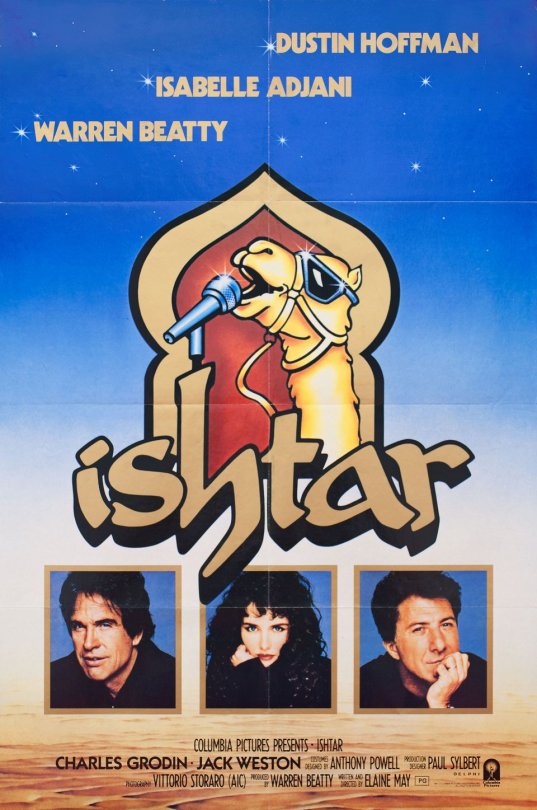
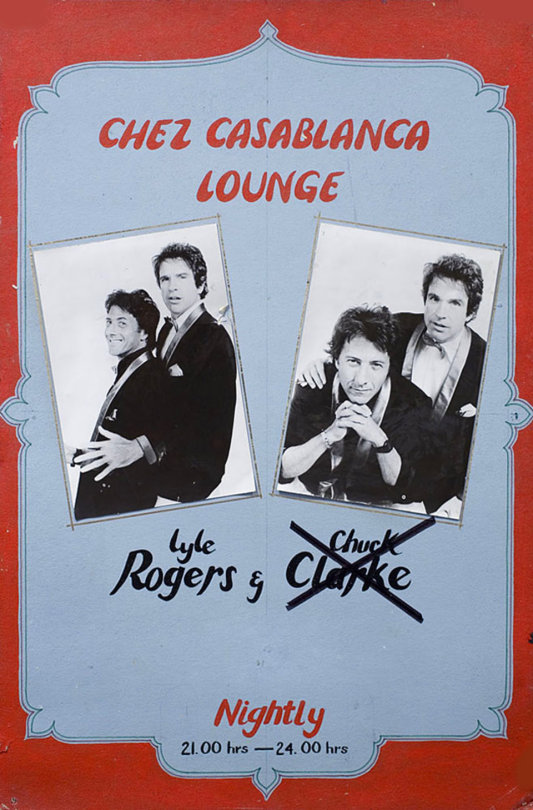
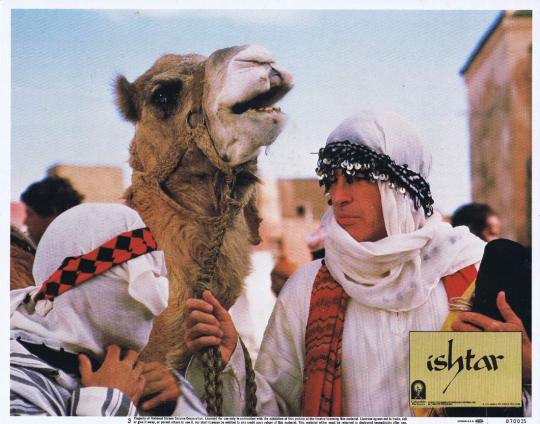





Ishtar (1987) Elaine May
March 3rd 2024
5 notes
·
View notes
Audio
Telling the truth can be dangerous business;
Honest and popular don't go hand in hand.
If you admit that you play the accordion,
No one will hire you in a rock 'n' roll band.
Ishtar - Soundtrack
#ishtar#warren beatty#dustin hoffman#elaine may#paul williams#song#music#audio#soundtrack#film#rogers and clarke#dangerous business
16 notes
·
View notes
Text
1934 –Bonnie and Clyde
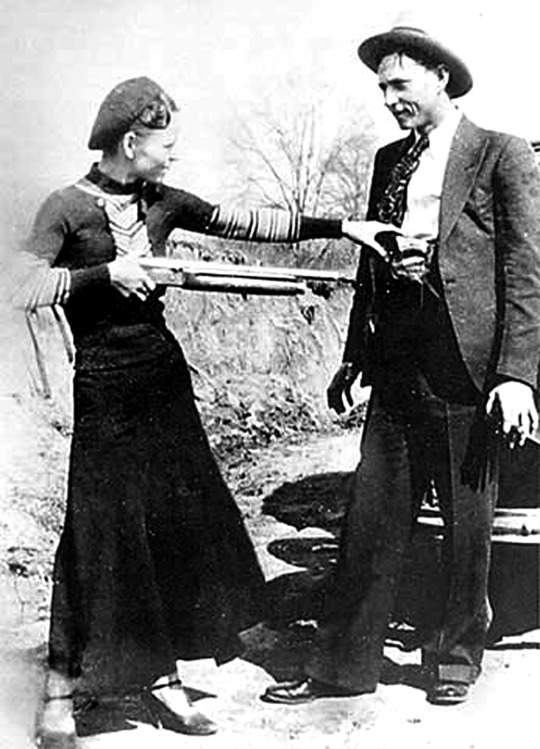
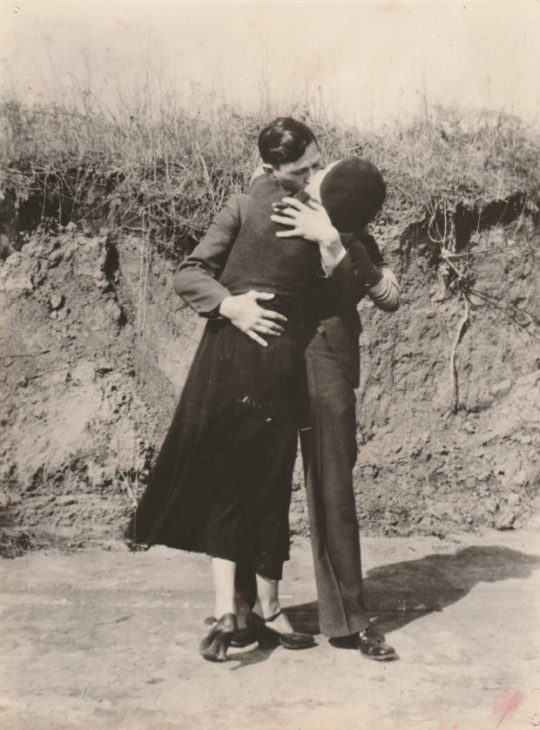

Bonnie Elizabeth Parker (October 1, 1910 – May 23, 1934) and Clyde Chestnut (Champion) Barrow (March 24, 1909 – May 23, 1934) were an American criminal couple who traveled the Central United States with their gang during the Great Depression.
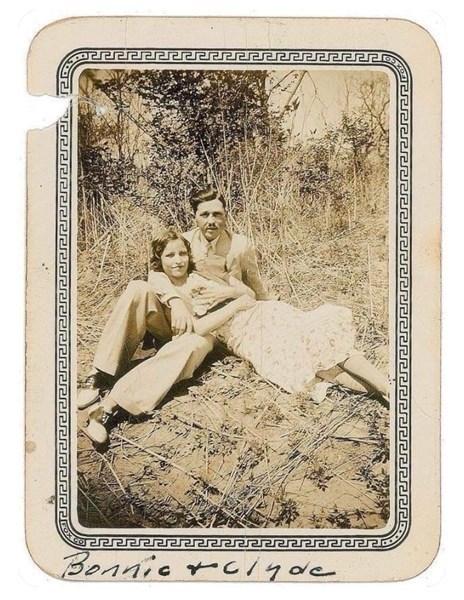

The couple were known for their bank robberies, although they preferred to rob small stores or rural funeral homes. Their exploits captured the attention of the American press and its readership during what is occasionally referred to as the "public enemy era" between 1931 and 1934.

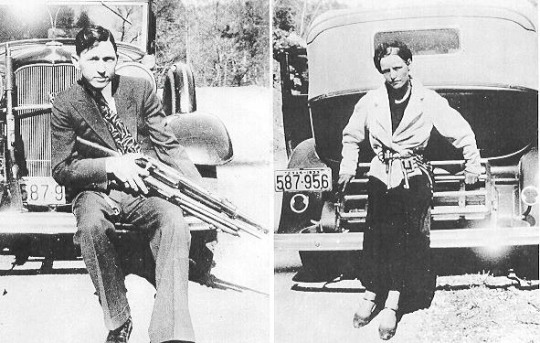
They were ambushed by police and shot to death in Bienville Parish, Louisiana. They are believed to have murdered at least nine police officers and four civilians.

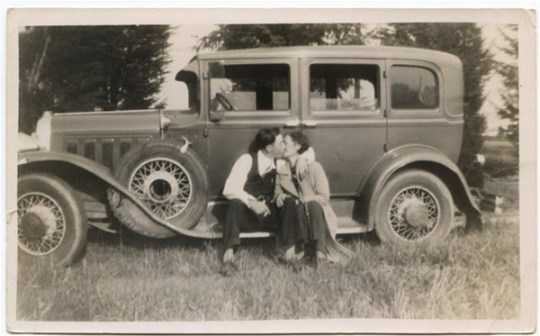
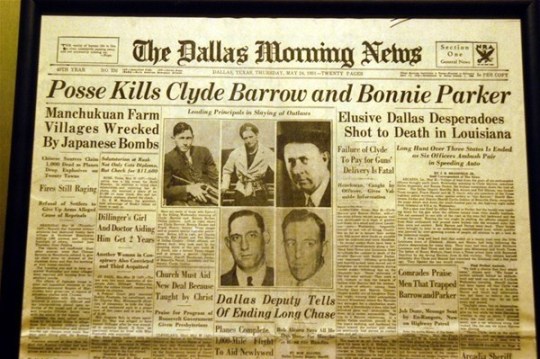
The 1967 film Bonnie and Clyde, directed by Arthur Penn and starring Warren Beatty and Faye Dunaway in the title roles, revived interest in the criminals and glamorized them with a romantic aura.



#May.23.1934#date of death#Bonnie and Clyde#public enemy era#Bienville Parish#Louisiana.#Warren Beatty#Faye Dunaway#history today
2 notes
·
View notes
Text
Update on Ishtar from Entertainment Tonight (August 22, 1986)
3 notes
·
View notes
Text

Warren Beatty and Elaine May photographed by Ron Galella, 1978.
17 notes
·
View notes
Text
Me: “I’m going to stop procrastinating and read The Invisible Man this weekend.”
Me, not even a day later: “Hehehehe Fahrenheit 451 go BRRRRRRR”
#I mean… at least I’m reading *something* and not going on my phone 24/7???#(I was able to find a hard copy for a low price; and I bought it despite everything screaming in me not to#(both my parents know I bought it because I told them it’s one of my favorite books ever)#If they do end up reading the synopsis on Wikipedia — or the book itself — and decide it’s too worldly for me to have#they may be less inclined to destroy it because it’s a book about book burning; or (more hilariously) they may decide to destroy it#in which case I will whip out my crappy digital copy and read Beatty’s lecture at the end of part one to them; to hold it up as a mirror#I may also have a copy of the 2003 edition of 1984 coming in the mail along with two other books (so I can open it privately and say#“I bought these two books because they looked interesting” and they’ll believe me (if the package is ambiguous enough)#or if it isn’t ambiguous I can just find a book I have that they’ve never seen me read and “re-gift” it to myself)#because I feel I will work more efficiently with a real copy of 1984 in my hands… and it will serve as motivation for me to read it again#which will further my understanding of the novel and make my adaptation better#(not to mention the fact that the books were on sale for five dollars a piece)#but one of the other books’ synopses revolves around the fact that a man woke up “bandaged and being tended to by his wife” 👀👀#and it seems like a “good” story in the eyes of the cult so uh#yeah#looking respectfully (in an ace way)#my book now#also: Anyone ever read the book Warp Speed by an author with the last name of Yee? Highly recommend#That one I already have (and I may read it again soon idk) but the third book I got reminds me of it in terms of the vibe of the premise#It’s about a kid who jokes all the time as a trauma response#something tells me I’ll relate to that LOL#I’m gonna have to sell a lot of my books because they just don’t interest me any longer (of course they don’t; I was nine#and I bought them at a book fair knowing full well I hated reading))#I’ll keep Guitar Notes and Godzilla and Killer Species 1 and 2; but the rest can all go#OH MY GOD Infestation… that one’s excellent. I’ll keep that too#Giant ants attacking a boarding school for troubled boys; and these kids have to escape the compound without getting eaten#good book#Loved it as a ten year old suffering from melancholy and whooping cough
3 notes
·
View notes